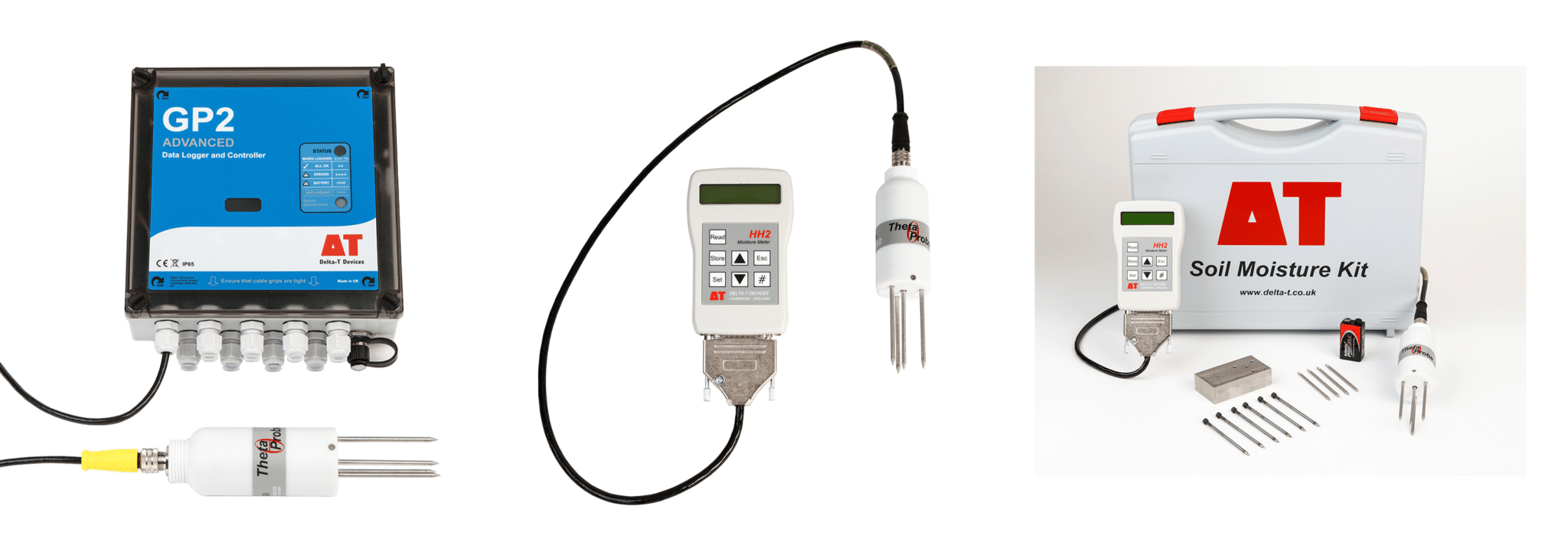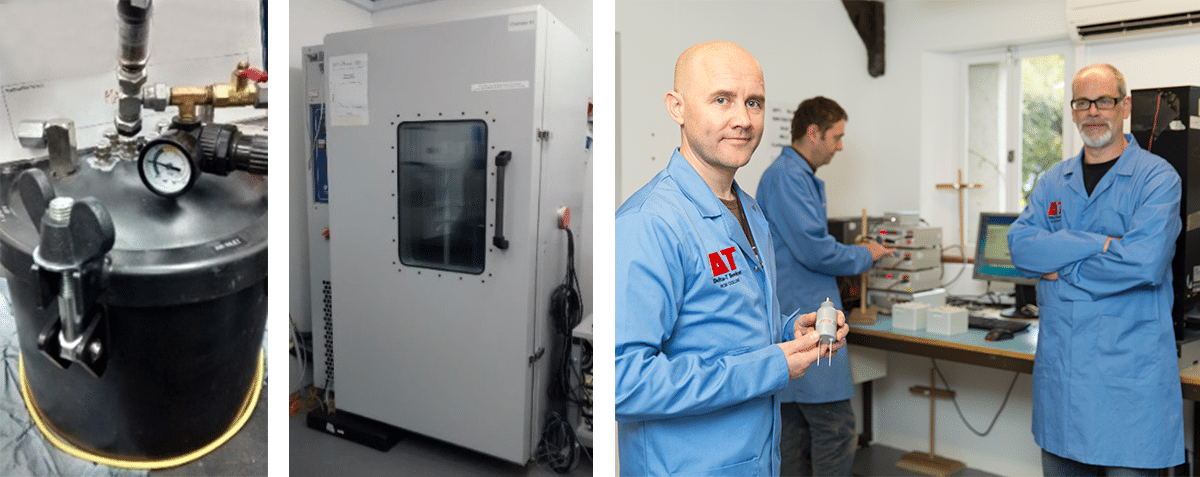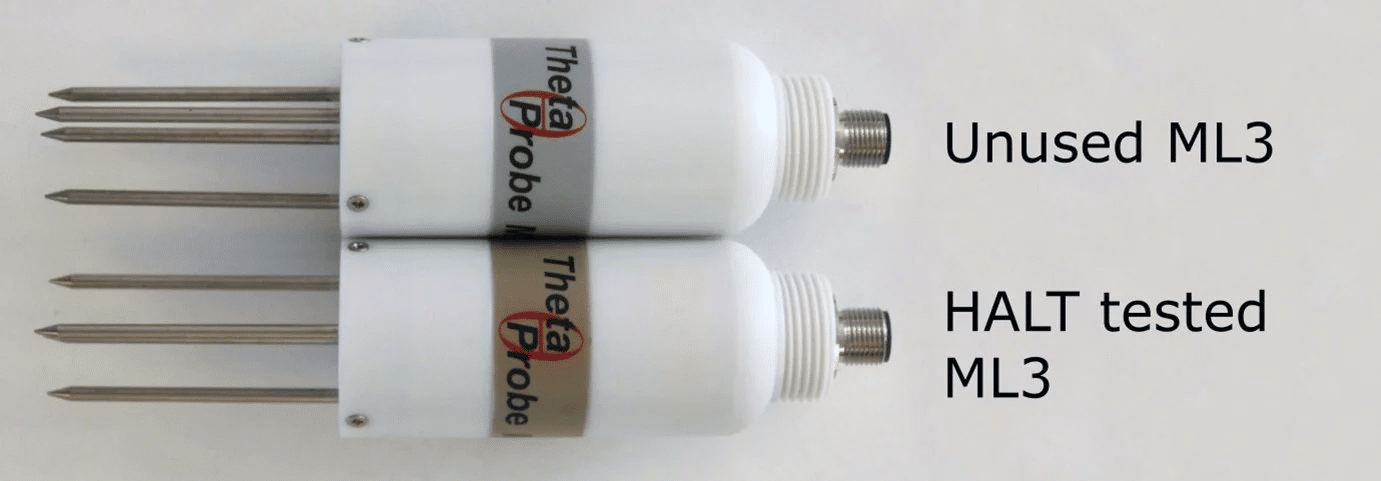For soil moisture research where absolute precision is required, the ML3 ThetaProbe sensor has few rivals.
For over a decade Its ± 1% accuracy, stability, build quality, and reliability have made it the preferred choice of thousands of scientific researchers worldwide.
The ML3 is a powerful solution that is easy to use. Simply insert the probe into the soil (connected to a HH2 portable instant readout meter or data logger) and within seconds you can be accurately measuring soil moisture.

A built-in thermistor enables the ML3 to simultaneously measure soil temperature (when probe is buried).
The salinity response of the ML3 has been characterised at EC values up to 2000 mS.m-1. It also has a wide operating temperature range, with tests demonstrating that the ML3 can operate down to -40°C (non-flexing cables).
The ML3’s rigorous testing regime
The environmental testing regime includes:
- submergence (4m)
- hot water leak testing
- thermal shock testing
- drop testing
- thermal cycling
- ultraviolet exposure
- solar gain testing
- water vapour diffusion testing
- ice heave
- cable fatigue

EMC testing includes:
- electrostatic discharge
- fast transient electrical testing
- surge testing
Miscellaneous testing includes:
- usability testing
- field trials
- calibration traceability
Highly Accelerated Life Testing (HALT) the ML3 Sensor
HALT is a particularly valuable testing technique that we employ across our soil sensor range.
It is a way of effectively simulating rigorous usage over an extended period of time – by subjecting an instrument to sustained high temperatures over a relatively short period of time.
Not only does this form of testing assess longevity and sustained consistency of accuracy, it also demonstrates an instrument’s ability to function beyond its stated specifications.
Multiple ML3 ThetaProbes have been HALT tested for 149 days at 90°C which is the equivalent of 10 years usage at 30°C*.
After electrical testing, all of the ML3’s were still in calibration and functioning perfectly. Label discoloration was the only sign of degradation, as you can see in the picture below.

When Delta-T Devices develop products for use in the field, we not only aim to meet the requirements of all relevant IP standards, but, where possible, to surpass them.
All of Delta-T’s scientific instruments undergo the comprehensive testing detailed above and benefit from attentive, ongoing after-sales technical support.
Visit the ML3 ThetaProbe web page
Visit the portable ML3 ThetaKit web page

